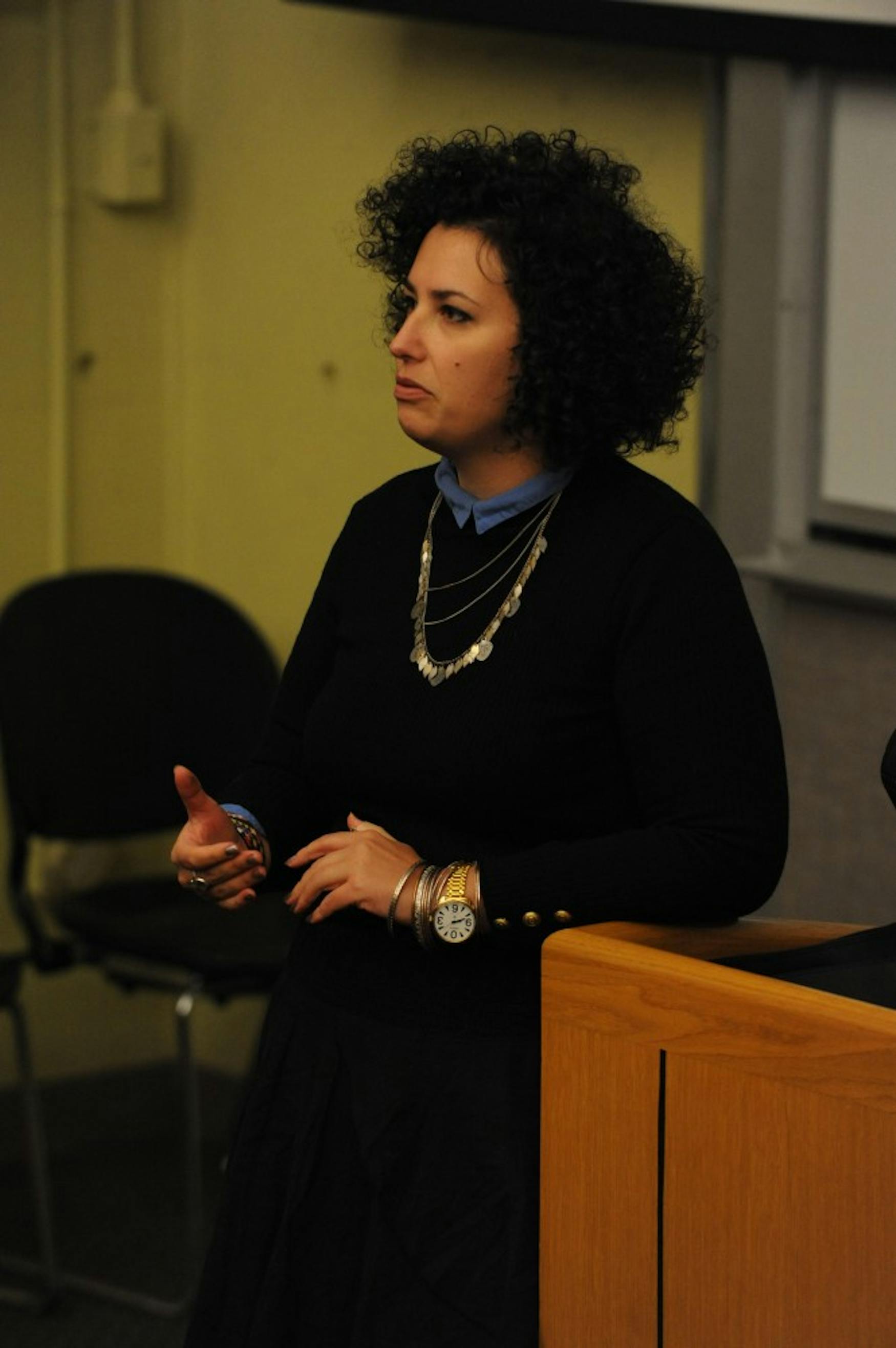Director talks on Israel film
Brandeis Students for Justice in Palestine held and sponsored a screening of Israeli director Lia Tarachansky’s 2013 documentary On the Side of the Road last Wednesday. A question-and-answer session with Tarachansky followed the screening.
Tarachansky, born in the former Soviet Union and raised in Israel, is a Canadian-educated journalist and videographer whose work has appeared in the Huffington Post, USA Today and Al Jazeera. On the Side of the Road is Tarachansky’s first documentary.
The documentary focuses on 1948—the year the State of Israel was established—paying close mind to what took place that year and how it is now taught in Israeli schools. Specifically, the film looks at one event in particular; the Nakba—meaning “catastrophe”—or the Palestinian expulsion from Israel following Israel’s independence.
According to the Ma’an News Agency, Israeli soldiers forced the ethnic cleansing of some 750,000 Palestinians during the Nakba. As the documentary mentions, Israel turned the sites of the Palestinian villages into parks and settlements, razed the buildings and, afterward, denied they were ever there.
In the film, Tarachansky profiles veterans from the 1948 war as they return to the sites of villages they destroyed, also filming Palestinians’ returns to the hometowns they had long left behind.
The documentary’s title pertains to Tarachansky’s return to her hometown, Ariel, a settlement in the Palestinian West Bank. In the film, Tarachansky may be seen looking out across a road in Ariel, viewing the land that once was a Palestinian village. This scene is also one of the film’s more emotional, as the director breaks down on camera upon realizing the full extent of Israel’s actions.
Regarding the Nakba, Tarachansky said that she believes the history surrounding the events is crucial, especially now as Israelis and Palestinians alike gear up for what she calls the “third intifada.”
According to Tarachansky, much of the animosity between the Palestinians and the Israelis can be traced back to the Nakba. In being aware of these events, Tarachansky said, one might understand some of the motives behind each side’s actions as the violent acts that began this summer escalate. Moreover, taking note from the past might help avoid more violence in the present and future.
“It’s important to look at the past and think about the present,” Tarachansky said. “Of the examples we have in history [of ethnic conflicts], there aren’t a lot of successes that don’t have a lot of people dying.”
Tarachansky said that she first became interested in the Nakba after viewing a video featuring Tikva Honig-Parnass, a veteran of the 1948 war who also makes an appearance in her documentary.
Tarachansky said during the question-and-answer that her research into the Nakba fueled her interest in making a documentary about the subject, and she felt compelled to discuss the issue with her friends. However, Tarachansky noted, she was met with either indifference or denial.
“I really thought that if it had such a big impact on me, it would have an impact on everyone else as well,” Tarachansky said. “I came to realize something else was at play here. It was not about the facts.”
The documentary also depicts several instances of Israelis’ violent and racist behavior toward Palestinians and members of Zochrot, an Israeli non-profit dedicated to raising awareness of the Nakba.
Yet despite the widespread intolerance, Tarachansky said it is crucial for Israelis to understand the Nakba and its importance in Israeli history.
“The Nakba is not just a Palestinian story; it’s our story,” she said. “[Israel] did this three years after the Holocaust.” Everyone, Tarachansky said, regardless of ethnicity, must ask controversial questions about their country’s history.
“People are dying. People are dying all the time,” Tarachansky said. “I think it’s our responsibility as Jewish people [to discuss the Nakba]. We have to, despite how hard it is.”
Tarachansky also noted that she has received a lot of criticism for her stance on the controversial issue. As she explained, Israel is a highly politicized nation, and despite the fact that it is a democracy, those who oppose popular opinion may be ostracized. Tarachansky described being an Israeli critical of Israel as living “in a constant state of contradiction.”
In terms of the plausibility of peace between Israel and Palestine, Tarachansky said the parties involved have thought of every possible solution, and no new ideas could possibly be brought to the table. Tarachansky noted that through her research and filming, she came to the conclusion that the Israeli government is becoming less and less democratic, and the only choice left is to change what she called the Israeli “regime.”
Still, despite being critical of both her government and the Palestinian extremists for their handling of the conflict, Tarachansky said that she has hope that Israeli-Palestinian peace may be achieved some day.
“We’ve lived before in peace, and we will live again in peace,” she said.



Please note All comments are eligible for publication in The Justice.